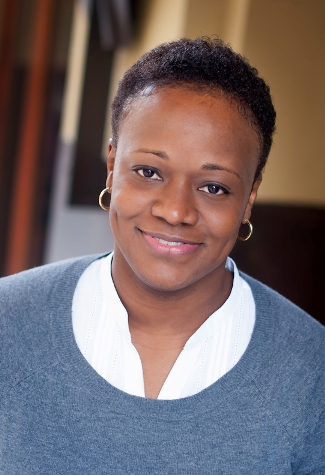
Marie Williams, Executive Director, Coalition for Juvenile Justice
Anniversaries are a time to celebrate, but also to look back and reflect on where we’ve been and where we are going. This week, the Coalition for Juvenile Justice (CJJ) will welcome more than 300 juvenile justice practitioners and policymakers to Washington, D.C., for our annual conference. Our theme, “Looking Back, Planning Ahead: A Vision for the Next 40 Years in Juvenile Justice,” reflects the fact that this year is our organization’s 30th anniversary, and is the 40th anniversary of the Juvenile Justice and Delinquency Prevention Act (JJDPA).
The more things change, the more they stay the same?
In 1986, shortly after CJJ was founded, we issued a report with recommendations to the president, Congress and the Office of Juvenile Justice and Delinquency Prevention (OJJDP). In it, CJJ asked that the General Accounting Office research the inappropriate use of the valid court order (VCO). We also asked that OJJDP “give the highest priority to research in the areas of: (a) differential incarceration rates of minority juveniles; (b) increasing numbers of youth with profound mental health problems in the juvenile justice system and (c) improved techniques in screening for risk, i.e., objective classification.”
All of these topics are still major challenges for the field of juvenile justice, although a look at how they are represented in our upcoming conference shows that the conversations around these issues is evolving. The number of states using the VCO has steadily decreased in recent years, and the majority of states no longer use it at all. Eliminating the VCO entirely has been a major part of CJJ’s work for many years, and U.S. Rep. Tony Cárdenas (D-CA29), author of a congressional bill that would phase-out the VCO exception, will be a featured speaker at our conference. Cárdenas’ bill and elimination of the VOC exception as part of JJDPA re-authorization will also be a focus of the conference’s Hill Day advocacy. But we and others are also increasingly calling for responses to status offenses that avoid the court system altogether. For one of our conference workshops, the Vera Institute of Justice’s Status Offense Reform Center will talk about how to implement status offense system change more broadly, and share local success stories. The field is also moving toward incarcerating fewer youth who commit delinquent offenses generally, and achieving better outcomes for youth using strategies including risk assessments, data driven decision making and community engagement. Several examples will be highlighted at a plenary presentation by Pew Charitable Trusts and a workshop given by the National Juvenile Justice Network.
Unlike when CJJ issued its 1986 report, disproportionate minority contact (DMC) is now one of the four core requirements of the JJDPA. Yet states still struggle with how to reduce, and even measure, DMC. As part of Hill Day advocacy for re-authorization of the JJDPA, CJJ members will offer Congress specific recommendations for how to strengthen the Act’s DMC provisions. During the conference’s Saturday plenary, experts from the W. Haywood Burns Institute and the Center for Children’s Law and Policy will provide strategies to address this issue from a national and local perspective. There will also be workshops on engaging communities and better using data to address DMC.
The conference will also include a federal update by OJJDP Administrator Robert L. Listenbee, and workshops discussing federal research and recommendations on evidence-based practices, adolescent development and preventing youth exposure to violence and the traumatic stress it causes.
New challenges, new solutions
The field — and our conference — is also now focused on many important issues that we weren’t as aware of 40, or even 20, years ago. Other workshop sessions will present guidance on dismantling the school-to-prison pipeline, better engaging families, and improving outcomes for crossover youth. Participants will also have the opportunity to learn more about solitary confinement and isolation of juveniles, and meeting the needs of gender non-conforming youth.
CJJ founder A.L. Carlisle will be at the conference to present the award named in her honor to JJDPA architect Dave Schmidt of New Mexico. Youth advocate Marquis Parker (DC) and Juvenile Justice Specialist Reg Garff (UT) will receive awards as well.
We at CJJ are excited to see so many colleagues and friends at our conference this week, and we look forward to continuing to partner with our members and the field to prevent delinquency and improve the juvenile justice system for those who do come into contact with it.